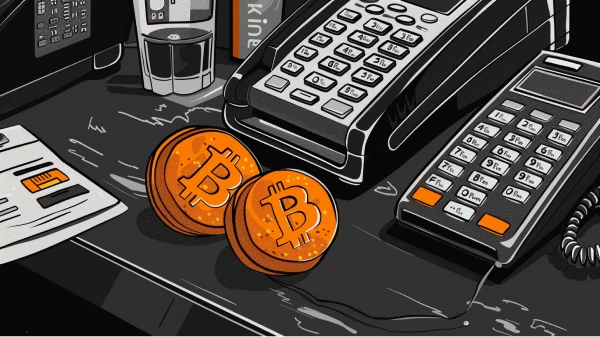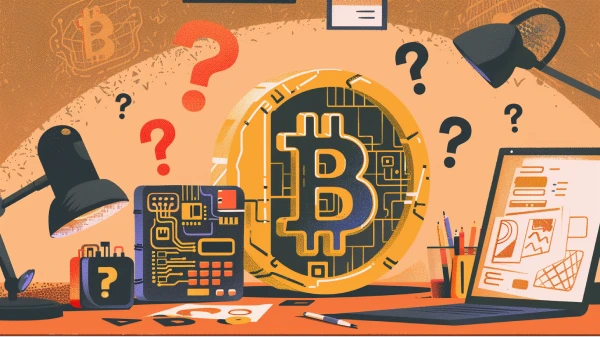The success of Bitcoin has generated many imitations and spin-offs. Some have genuinely attempted to recreate or extend Bitcoin’s innovation on money, while others have been nothing more than affinity scams, playing off of Bitcoin’s reputation to attract investors.
These alternative coins, known as altcoins, may seemingly threaten Bitcoin in a variety of ways. However, Bitcoin has a few key properties that altcoins cannot copy-paste. These properties include network effects and recognizability, Lindy effects and proven reliability, as well as immutable and sound monetary policy.
What Differentiates Bitcoin From Other Projects?
Network Effects and Recognizability
As the first successful cryptocurrency, Bitcoin has experienced a significant first-mover advantage. It attracts many of the brightest developers, and over its 12 year history, it has built a large, diverse community. Tens of thousands of nodes across the world connect to form Bitcoin’s network, which is far larger than any other cryptocurrency when measured by hash rate, market capitalization, or volume. This industry dominance creates a recognizable brand for Bitcoin, despite the similarity of many altcoin names and logos.
Lindy Effects and Reliability
Bitcoin has experienced an uptime unparalleled by any technology or company. Since 2013, Bitcoin has remained active and accessible without interruption. Not even companies like Google, Microsoft, and Facebook have achieved this level of reliability. Bitcoin has survived external attacks, attempted bans from governments, and internal disputes over the direction of the protocol. Bitcoin has weathered massive price climbs and drops, and its volatility has declined over time. Finally, Bitcoin is the only cryptocurrency with over a decade of experience. The fact that Bitcoin has survived this long serves as a positive signal to many investors, developers, and former critics.
Antifragility
Over twelve years of existence, Bitcoin has grown more resilient in many ways. At birth, Bitcoin had a central leader, a single point of failure. Over time, Satoshi Nakamoto, the creator, yielded control of the project to a more decentralized group of early developers. This trend of decentralization has continued ever since. Today, the Bitcoin network is comprised of tens of thousands of nodes and an unknown number of miners. Unlike most altcoins, Bitcoin cannot be shut down by a government or leader’s whim.
Bitcoin has improved rapidly in the technological realm as well. Syncing the full blockchain has gotten faster. Transaction throughput has increased. Scaling and privacy solutions are being built. As patents on signature verification and aggregation schemes expire, Bitcoin is integrating these superior methods. Bugs in the code have been discovered and fixed. Lastly, increased tooling and education has allowed a growing number of developers to contribute to Bitcoin’s codebase and related projects.
Bitcoin has also overcome many social and political trials that refuted many bearish theses. In 2013, when the Silk Road was shut down by the U.S. government, Bitcoin not only resisted being shut down, but it gained attention and adoption. After the first few halvings, several critics predicted that Bitcoin would not maintain sufficient hash rate to protect itself against a 51% attack. Critics claimed that the drop in security would trigger a price drop, stripping more hash rate from the network and starting a downward spiral. Others claimed that the price drop from $19,000 to $6,000 would prove Bitcoin was a bubble and lead to a slow, steady decline to zero. Still others claimed that a fork of Bitcoin would destroy its network effects and sound monetary policy, or that Bitcoin could not scale. None of these fears have been realized, and Bitcoin has grown from each of these trials.
➤ Learn more about what differentiates Bitcoin from crypto.
Do Altcoins Create Inflation for Bitcoin?
Altcoins do not create inflation for Bitcoin because they are a different asset than Bitcoin. Likewise, a new IPO on the New York Stock Exchange does not create inflation for existing stocks. This is because Bitcoin is a unique asset and is not fungible with other cryptocurrencies. While other cryptocurrencies may launch and inflate their supply, none of these coins, not even hard forks of Bitcoin, can be introduced to the Bitcoin supply or passed off as real bitcoin. Thus, there will only ever be 21 million bitcoins.
➤ Learn more about why Bitcoin’s hard cap cannot be changed.
Why Won’t a Superior Altcoin Overtake Bitcoin?
Bitcoin maintains several advantages over other cryptocurrencies.
As the first mover, Bitcoin has the largest network, the most legitimacy in the eyes of retail and institutional investors, and is built on top of the most secure database in history.
Bitcoin’s network effects should not be underestimated. The network effects of money are extremely powerful, more so than those of social media. If you choose the wrong social media, you may find yourself bored. If you hold the wrong money, you may find yourself starving. Conversely, choosing the right money early on can yield extraordinary returns. However, what gives bitcoiners ultimate confidence that an altcoin will not supplant Bitcoin is its fair, immutable monetary policy. This is a trait which cannot be improved upon by any technology.
Bitcoin is primarily an innovation on money. It is secondarily an innovation in payment methods, but not a particularly groundbreaking one. The difference here lies in the fact that money and payment methods rely on different traits. An ideal payment method should be fast, cheap, and universally accepted. An ideal money must be a store value across time and space, and Bitcoin promises to do this better than any other asset, including other cryptocurrencies. Its ability to store long-term value is due to Bitcoin’s strictly defined monetary policy. There will never be more than 21 million bitcoins. From an economic perspective, it is difficult to imagine a more tempting investment or a more sustainable monetary policy.
Bitcoin’s monetary policy is enforced by the tens of thousands of nodes across the world, each verifying every transaction on the Bitcoin network. Unlike a central bank’s monetary policy, Bitcoin’s monetary policy cannot be changed by a vote at a committee meeting. To successfully change Bitcoin’s monetary policy, all nodes on the network must be convinced to change their rules. This is simply infeasible.
Are Altcoins Scarce?
Several altcoins have copied Bitcoin’s hard cap, including forks of Bitcoin itself. However, only Bitcoin’s hard cap is reliable for two reasons. First, only Bitcoin can truly claim to be decentralized. An altcoin—or any currency for that matter—which is centralized cannot reliably establish a hard cap as the authority in charge can simply revoke that hard cap at any point.
Second, although most of Bitcoin’s forks maintain a hard cap, their value proposition is completely eclipsed by Bitcoin’s, and, as has been continuously demonstrated, Bitcoin forks are incapable of maintaining an immutable consensus ruleset.
Key Takeaways
- Bitcoin was the first functional cryptocurrency and has built upon its first-mover advantage with reliability and stability.
- Bitcoin is an innovation on money, and there is no possible improvement upon Bitcoin's monetary policy.
- Bitcoin's monetary policy is more reliable and sound than any other cryptocurrency, making it a superior investment.
- Bitcoin is continuously innovating at a rapid yet safe pace.


